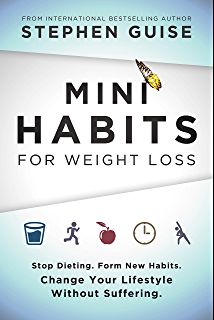- 最超值的Mac——Mac mini
初心么么哒
你知道最超值的Mac是什么吗?自2005年以来,Macmini一直是Apple台式机产品线中的主要产品。最初推出是为了让对Mac好奇的Mac进入Apple生态系统的一种简单方式,现在新的AppleSiliconMacmini可能是任何寻找新Mac的人的最有吸引力的购买。什么是AppleSiliconMacmini?M1Macmini是Apple最小的台式电脑,同时也是最快的台式电脑之一。最新型号由
- linux 发展史
种树的猴子
内核java操作系统linux大数据
linux发展史说明此前对linux认识模糊一知半解,近期通过学习将自己对于linux的发展总结一下方便大家日后的学习。那Linux是目前一款非常火热的开源操作系统,可是linux是什么时候出现的,又是因为什么样的原因被开发出来的呢。以下将对linux的发展历程进行详细的讲解。目录一、Linux发展背景二、UINIX的诞生三、UNIX的重要分支-BSD的诞生四、Minix的诞生五、GNU与Free
- 人要有自知之明
孟冬廿六
今天中午跟一学妹聊天,谈起结婚找对象的问题,小姑娘年龄不算大,二十七岁,但是整个人很清醒很现实,她如今在一国企上班,吃住都不花钱,再加上她经常出差,补助奖金这一块儿也不少,一年下来七七八八的有个小二十万,这对于一个小姑娘来说已经非常不错了,她计划这两年自己付首付买房,然后想要买辆MINI,小姑娘一米七六的个子,长得漂亮有气质,家庭条件也不错,所以对于择偶方面也有一定的要求,最好是事业单位的,父母有
- 使用由 Python 编写的 lxml 实现高性能 XML 解析
hunyxv
python笔记pythonxml
转载自:文章lxml简介Python从来不出现XML库短缺的情况。从2.0版本开始,它就附带了xml.dom.minidom和相关的pulldom以及SimpleAPIforXML(SAX)模块。从2.4开始,它附带了流行的ElementTreeAPI。此外,很多第三方库可以提供更高级别的或更具有python风格的接口。尽管任何XML库都足够处理简单的DocumentObjectModel(DOM
- 2021-08-24 Say no to the next social
春生阁
Youknowthesort.Drinkswitholdfriendsyouhavenothingincommonwithanymore.Yoursecondcousinonceremoved’sbabyshowerwitha$100minimumpresentspend.Thesesortsofsocialengagementssuckthelivingtimeandmoneyoutofyou.
- 华为坤灵路由器初始化开局的注意事项,含NAT配置
redmond88
网络技术华为服务器运维
坤灵路由器比较坑,无web界面,全程命令行配置,但是版本更新导致和华为企业路由器配置很多不一样的地方,今天介绍下1、aaa密码复杂度修改:#使能设备对密码进行四选三复杂度检查功能。system-view[HUAWEI]aaa[HUAWEI-aaa]local-aaa-userpasswordpolicyadministrator[HUAWEI-aaa-lupp-admin]passwordcomp
- 昇思MindSpore AI框架MindFormers实践3:ChatGLM3-6B对一段文字进行提取
skywalk8163
人工智能项目实践人工智能mindspore
MindSpore和MindFormers安装参见:昇思AI框架实践1:安装MindSpoe和MindFormers_miniconda安装mindspore-CSDN博客使用了MindSpore2.2和MindFormers1.0支持的模型:KeyError:"modelmustbeinodict_keys(['gpt2','gpt2_lora','gpt2_xl','gpt2_xl_lora'
- 随摘
桔桔岛
Oneshouldcaremoreaboutone'sowngrowthinsteadofothers.Toliveahappylife,oneshouldalwaystryeveryefforttominimizeregretsinlife.比起时刻注视着他人,多关注自身的成长,尽自己的一切努力让生活少点遗憾,才能过上快意人生。Whenoneshiftstheirfocusfromotherst
- 【Java将File完美转为MultipartFile】:亲测有效
阿火~
java
由于multipartFile有很多有用的api,但是有时候我们接收到前台的参数是文件名和文件内容,而不是文件,此时不能使用multipartFile接收,导致处理起来很不方便,比如我用minio上传文件,minio需要multipartFile类型的文件,而我拿到前端传来的文件名和文件内容只能自己通过File类创建文件,所以如果想用multipartFile类型就需要自己转换,然而天不遂人愿,并
- Vite项目中eslint的简单配置
DT——
其他javascript前端代码规范
1.创建一个vite项目使用包管理工具创建一个vite项目。npminitvite@latest#或者使用yarncreateyarncreatevite#或者使用pnpmpnpmcreatevite2.安装eslintnpminstalleslint-D#或者使用yarnyarnaddeslint-D#或者使用pnpmpnpmaddeslint-D3.初始化eslint配置文件在项目根目录下运行
- Python实现梯度下降法
闲人编程
pythonpython开发语言梯度下降算法优化
博客:Python实现梯度下降法目录引言什么是梯度下降法?梯度下降法的应用场景梯度下降法的基本思想梯度下降法的原理梯度的定义学习率的选择损失函数与优化问题梯度下降法的收敛条件Python实现梯度下降法面向对象的设计思路代码实现示例与解释梯度下降法应用实例:线性回归场景描述算法实现结果分析与可视化梯度下降法的改进版本随机梯度下降(SGD)小批量梯度下降(Mini-batchGradientDesce
- 四、webpack4.0 - tapable
Razas
WEBPACK4webpack4.0
一、tapable介绍webpack中插件的时候,需要用到tapable。新建一个项目WEBPACK-Tapable。初始化package.json:npminit-y安装:npminstalltapable--savetapable是一个包。二、tapable三、AsyncParralleHook四、AsyncSeriesHook五、AsyncSeriesWaterfall
- Docker-compose minio集群部署
有点菜的运维
docker容器运维
一、虚机准备192.168.40.174192.168.40.174192.168.40.176二、下载docker-compose离线安装docker及docker-compose_docker-compose离线安装-CSDN博客三、docker-compose.yml文件按docker-compose文件启动,minio的api端口为9000,控制台端口为9001174version:"3"
- docker-compose部署minio分布式集群
伏案惊涛
docker分布式容器
1、节点情况建议:minio节点数最好4节点以上,nginx独立部署在其他服务器。主机IP操作系统部署情况minio1192.168.16.34centos7miniominio2192.168.16.35centos7miniominio3192.168.16.36centos7miniominio4192.168.16.40centos7minio、nginx2、安装docker、docker
- uniapp+uview-plus实现微信小程序自定义tabbar
yx_back
小程序前端uniappuni-app微信小程序uview-plus
参考文档微信小程序相关开发文档链接:https://developers.weixin.qq.com/miniprogram/dev/framework/ability/custom-tabbar.html虽然是uniapp框架但是实现方式和原生小程序相似实现思路1、app.json里面tabBar添加配置custom:true,其他和非自定义设置一样2、在components文件夹里添加Tabb
- ‘float‘ object cannot be interpreted as an integer
多欢喜
深度学习进阶课程error
今天写代码的时候遇到了新的问题:'float'objectcannotbeinterpretedasaninteger代码出错地方:forminibatch_indexinrange(num_training_batches):找到num_traininng_batches:num_training_batches=size(training_data)/mini_batch_size理论上感觉没
- 【Webpack 踩坑】CSS加载缓慢
①条咸鱼
webpackcssrust
问题:使用webpack5,单独index.scss在assets/css目录下,但是不管是production还是development环境下,都会出现dom加载完后再渲染样式本意是想要将样式单独打包到一个文件夹,还有压缩css于是用了mini-css-extract-plugin这个loader(前提要先安装)//webpack.config.jsconstMiniCssExtractPlug
- Linux+Docker:3分钟实现MinIO在线部署与Java集成
码龄23年
linuxdockerjava
Linux下使用Docker安装MinIO1.拉取MinIO镜像dockerpullminio/minio2.创建挂载目录mkdir-p/opt/minio/datamkdir-p/optl/minio/config3.检查端口占用sudolsof-i:9000...4.启动MinIO容器dockerrun--nameminio\#容器名称-p9010:9000\#映射主机端口9010到容器端口9
- [Windows] MinGW 与 MSYS2
ERIC-ZI
Windowswindows
一、MinGW(MinimalistGNUforWindows)MinGW(MinimalistGNUforWindows)是一个专为Windows系统设计的工具集,旨在为Windows开发者提供一个轻量级且高效的GNU工具链。该工具集的核心是GNU编译器集合(GCC),其中包括了支持多种编程语言的编译器,如C、C++和Ada。MinGW的主要目标是让开发者能够在Windows系统上直接编译和运行
- 51单片机-AT24C02-实验2-秒表实验(可参考上一节)
Whappy001
51单片机嵌入式硬件单片机
利用定时器去对按键和数码管进行扫描(Whappy)main.c#include#include"LCD1602.h"#include"AT24C02.h"#include"Delay.h"#include"Timer0.h"#include"Nixie.h"#include"Key.h"unsignedcharKeyNum;unsignedcharMin,Sec,MiniSec;unsignedc
- webpack 配置
weixin_44101835
webpack前端node.js
webpack.base.jsconstpath=require('path');constHtmlWebpackPlugin=require('html-webpack-plugin');constMiniCssExtractPlugin=require('mini-css-extract-plugin');modules.export=function(isDev){return{//入口文件
- Cuda 程序编译报错: fatal error: cusparse.h: No such file or directory
原野寻踪
实践经验cuda
编译cuda程序时发现下列报错:/mnt/xxx/miniconda3/envs/xxx/lib/python3.8/site-packages/torch/include/ATen/cuda/CUDAContext.h:6:10:fatalerror:cusparse.h:Nosuchfileordirectory#include^~~~~~~~~~~~检查发现是选择了错误的Cuda版本。ls/
- EG边缘计算网关连接中移ONENET物联网平台(MQTT协议)
成都纵横智控科技官方账号
边缘计算网关物联网工业网关边缘计算物联网MQTT中移ONENET
上文:EG边缘计算网关连接阿里云物联网平台(MQTT协议)需求概述本章节主要实现一个流程:EG8200mini采集ModbusRTU数据,通过MQTT协议连接中移ONENET物联网平台ModbusRTU采集此处不做过多赘述,可参考其他案例(串口读取Modbus传感器数据)介绍。下文默认已经采集到ModbusRTU数据。要采集的Modbus点位表:地址(Doc)数据类型属性名称00001Boolea
- 代号无畏、中情局始祖,破译“恩尼格码”,他才是007真正原型
历史的声音
代号无畏、中情局始祖,破译“恩尼格码”,他才是007真正原型_文章_全历史自从“007”系列小说火了之后,关于詹姆士·邦德真实原型的猜想就没有断过。坊间各种版本层出不穷,但唯一被原作者伊恩·弗莱明盖章的只有威廉·史蒂芬森(WilliamStephenson)。谍报首脑、战斗机飞行员、“X训练营”创始人、英国安全协调局局长、加拿大政府工业发展顾问……这些看似“杰克苏”剧情里的身份,在他的身上合而为一
- vue中给打包的文件指定自定义文件名以及加上哈希值解决每次打包上线存在缓存问题
miao_zz
vuevue
vue中给打包的文件指定自定义文件名以及加上哈希值解决每次打包上线存在缓存问题vue.config.jsvue.config.jsconstport=process.env.port||8081//端口constTimestamp=newDate().getTime();constMiniCssExtractPlugin=require("mini-css-extract-plugin")modu
- 探索未来Web开发的精简之道:ASP.NET Core 8.0 Minimal API 示例项目
尚舰舸Elsie
探索未来Web开发的精简之道:ASP.NETCore8.0MinimalAPI示例项目随着微服务和云原生架构的兴起,轻量级API成为了开发社区的新宠。ASP.NETCore8.0MinimalAPIExample正是这样一个项目,它集成了最新技术栈,简化了API开发过程,让开发者能够以最少的代码实现强大的功能。本文将带你深入了解这一开源杰作,揭示其技术魅力,并探索其应用场景。项目介绍ASP.NET
- 能力追上博士生,OpenAI发布最强o1系列模型
杰克尼
杂谈chatgpt
9月13日凌晨1点,OpenAI发布o1系列模型,包括o1-preview(下称o1预览版)和o1-mini。针对这一消息,该公司创始人SamAltman在X上表示:“nomorepatience,jimmy.(需要耐心等待的时刻结束了)”OpenAI表示:“该模型代表了人工智能能力的新水平。鉴于此,我们将计数器重置为1,并将该系列命名为o1。”这也意味着,o1就是此前坊间盛传即将发布的“草莓”模
- Gemini实时语音模式对安卓用户免费——现在你就可以试用
AI小智慧
语音识别人工智能
Gemini,这是谷歌快速崛起的AI驱动应用,现在已经开始向Android用户免费推出其实时语音模式。这将使用户能够与Gemini进行实时的交互式语音对话,这是我们与AI互动方式的一大进步。之前,用户只能通过传统的文字输入和响应来与Gemini互动,而现在借助Gemini实时语音模式,用户可以免提地实时探索想法、头脑风暴和讨论各种话题。这种创新互动体验与光年AI的灵活工作流不谋而合,进一步增强了用
- 新款 GPT-4o mini、Llama 3.1、Mistral NeMo 12B 和其他 GenAI 趋势指南
数云界
llama
作者使用GPT-4o创建的图像,用于表示不同的模型欢迎来到雲闪世界。自2022年11月推出ChatGPT以来,几乎每周都会出现新的模型、新颖的提示方法、创新的代理框架或其他令人兴奋的GenAI突破。2024年7月也不例外:仅在本月,我们就看到了MistralCodestralMamba、MistralNeMo12B、GPT-4omini和Llama3.1等的发布。这些模型在推理速度、推理能力、编码
- 二进制方式部署K8s高可用集群
麻辣头马头
kubernetes容器云原生运维服务器docker网络
1二进制方式部署K8s高可用集群1.1kubeadm和二进制安装k8s适用场景分析kubeadm是官方提供的开源工具,是一个开源项目,用于快速搭建kubernetes集群,目前是比较方便和推荐使用的。kubeadminit以及kubeadmjoin这两个命令可以快速创建kubernetes集群。Kubeadm初始化k8s,所有的组件都是以pod形式运行的,具备故障自恢复能力。kubeadm是工具,
- java的(PO,VO,TO,BO,DAO,POJO)
Cb123456
VOTOBOPOJODAO
转:
http://www.cnblogs.com/yxnchinahlj/archive/2012/02/24/2366110.html
-------------------------------------------------------------------
O/R Mapping 是 Object Relational Mapping(对象关系映
- spring ioc原理(看完后大家可以自己写一个spring)
aijuans
spring
最近,买了本Spring入门书:spring In Action 。大致浏览了下感觉还不错。就是入门了点。Manning的书还是不错的,我虽然不像哪些只看Manning书的人那样专注于Manning,但怀着崇敬 的心情和激情通览了一遍。又一次接受了IOC 、DI、AOP等Spring核心概念。 先就IOC和DI谈一点我的看法。IO
- MyEclipse 2014中Customize Persperctive设置无效的解决方法
Kai_Ge
MyEclipse2014
高高兴兴下载个MyEclipse2014,发现工具条上多了个手机开发的按钮,心生不爽就想弄掉他!
结果发现Customize Persperctive失效!!
有说更新下就好了,可是国内Myeclipse访问不了,何谈更新...
so~这里提供了更新后的一下jar包,给大家使用!
1、将9个jar复制到myeclipse安装目录\plugins中
2、删除和这9个jar同包名但是版本号较
- SpringMvc上传
120153216
springMVC
@RequestMapping(value = WebUrlConstant.UPLOADFILE)
@ResponseBody
public Map<String, Object> uploadFile(HttpServletRequest request,HttpServletResponse httpresponse) {
try {
//
- Javascript----HTML DOM 事件
何必如此
JavaScripthtmlWeb
HTML DOM 事件允许Javascript在HTML文档元素中注册不同事件处理程序。
事件通常与函数结合使用,函数不会在事件发生前被执行!
注:DOM: 指明使用的 DOM 属性级别。
1.鼠标事件
属性
- 动态绑定和删除onclick事件
357029540
JavaScriptjquery
因为对JQUERY和JS的动态绑定事件的不熟悉,今天花了好久的时间才把动态绑定和删除onclick事件搞定!现在分享下我的过程。
在我的查询页面,我将我的onclick事件绑定到了tr标签上同时传入当前行(this值)参数,这样可以在点击行上的任意地方时可以选中checkbox,但是在我的某一列上也有一个onclick事件是用于下载附件的,当
- HttpClient|HttpClient请求详解
7454103
apache应用服务器网络协议网络应用Security
HttpClient 是 Apache Jakarta Common 下的子项目,可以用来提供高效的、最新的、功能丰富的支持 HTTP 协议的客户端编程工具包,并且它支持 HTTP 协议最新的版本和建议。本文首先介绍 HTTPClient,然后根据作者实际工作经验给出了一些常见问题的解决方法。HTTP 协议可能是现在 Internet 上使用得最多、最重要的协议了,越来越多的 Java 应用程序需
- 递归 逐层统计树形结构数据
darkranger
数据结构
将集合递归获取树形结构:
/**
*
* 递归获取数据
* @param alist:所有分类
* @param subjname:对应统计的项目名称
* @param pk:对应项目主键
* @param reportList: 最后统计的结果集
* @param count:项目级别
*/
public void getReportVO(Arr
- 访问WEB-INF下使用frameset标签页面出错的原因
aijuans
struts2
<frameset rows="61,*,24" cols="*" framespacing="0" frameborder="no" border="0">
- MAVEN常用命令
avords
Maven库:
http://repo2.maven.org/maven2/
Maven依赖查询:
http://mvnrepository.com/
Maven常用命令: 1. 创建Maven的普通java项目: mvn archetype:create -DgroupId=packageName
- PHP如果自带一个小型的web服务器就好了
houxinyou
apache应用服务器WebPHP脚本
最近单位用PHP做网站,感觉PHP挺好的,不过有一些地方不太习惯,比如,环境搭建。PHP本身就是一个网站后台脚本,但用PHP做程序时还要下载apache,配置起来也不太很方便,虽然有好多配置好的apache+php+mysq的环境,但用起来总是心里不太舒服,因为我要的只是一个开发环境,如果是真实的运行环境,下个apahe也无所谓,但只是一个开发环境,总有一种杀鸡用牛刀的感觉。如果php自己的程序中
- NoSQL数据库之Redis数据库管理(list类型)
bijian1013
redis数据库NoSQL
3.list类型及操作
List是一个链表结构,主要功能是push、pop、获取一个范围的所有值等等,操作key理解为链表的名字。Redis的list类型其实就是一个每个子元素都是string类型的双向链表。我们可以通过push、pop操作从链表的头部或者尾部添加删除元素,这样list既可以作为栈,又可以作为队列。
&nbs
- 谁在用Hadoop?
bingyingao
hadoop数据挖掘公司应用场景
Hadoop技术的应用已经十分广泛了,而我是最近才开始对它有所了解,它在大数据领域的出色表现也让我产生了兴趣。浏览了他的官网,其中有一个页面专门介绍目前世界上有哪些公司在用Hadoop,这些公司涵盖各行各业,不乏一些大公司如alibaba,ebay,amazon,google,facebook,adobe等,主要用于日志分析、数据挖掘、机器学习、构建索引、业务报表等场景,这更加激发了学习它的热情。
- 【Spark七十六】Spark计算结果存到MySQL
bit1129
mysql
package spark.examples.db
import java.sql.{PreparedStatement, Connection, DriverManager}
import com.mysql.jdbc.Driver
import org.apache.spark.{SparkContext, SparkConf}
object SparkMySQLInteg
- Scala: JVM上的函数编程
bookjovi
scalaerlanghaskell
说Scala是JVM上的函数编程一点也不为过,Scala把面向对象和函数型编程这两种主流编程范式结合了起来,对于熟悉各种编程范式的人而言Scala并没有带来太多革新的编程思想,scala主要的有点在于Java庞大的package优势,这样也就弥补了JVM平台上函数型编程的缺失,MS家.net上已经有了F#,JVM怎么能不跟上呢?
对本人而言
- jar打成exe
bro_feng
java jar exe
今天要把jar包打成exe,jsmooth和exe4j都用了。
遇见几个问题。记录一下。
两个软件都很好使,网上都有图片教程,都挺不错。
首先肯定是要用自己的jre的,不然不能通用,其次别忘了把需要的lib放到classPath中。
困扰我很久的一个问题是,我自己打包成功后,在一个同事的没有装jdk的电脑上运行,就是不行,报错jvm.dll为无效的windows映像,如截图
最后发现
- 读《研磨设计模式》-代码笔记-策略模式-Strategy
bylijinnan
java设计模式
声明: 本文只为方便我个人查阅和理解,详细的分析以及源代码请移步 原作者的博客http://chjavach.iteye.com/
/*
策略模式定义了一系列的算法,并将每一个算法封装起来,而且使它们还可以相互替换。策略模式让算法独立于使用它的客户而独立变化
简单理解:
1、将不同的策略提炼出一个共同接口。这是容易的,因为不同的策略,只是算法不同,需要传递的参数
- cmd命令值cvfM命令
chenyu19891124
cmd
cmd命令还真是强大啊。今天发现jar -cvfM aa.rar @aaalist 就这行命令可以根据aaalist取出相应的文件
例如:
在d:\workspace\prpall\test.java 有这样一个文件,现在想要将这个文件打成一个包。运行如下命令即可比如在d:\wor
- OpenJWeb(1.8) Java Web应用快速开发平台
comsci
java框架Web项目管理企业应用
OpenJWeb(1.8) Java Web应用快速开发平台的作者是我们技术联盟的成员,他最近推出了新版本的快速应用开发平台 OpenJWeb(1.8),我帮他做做宣传
OpenJWeb快速开发平台以快速开发为核心,整合先进的java 开源框架,本着自主开发+应用集成相结合的原则,旨在为政府、企事业单位、软件公司等平台用户提供一个架构透
- Python 报错:IndentationError: unexpected indent
daizj
pythontab空格缩进
IndentationError: unexpected indent 是缩进的问题,也有可能是tab和空格混用啦
Python开发者有意让违反了缩进规则的程序不能通过编译,以此来强制程序员养成良好的编程习惯。并且在Python语言里,缩进而非花括号或者某种关键字,被用于表示语句块的开始和退出。增加缩进表示语句块的开
- HttpClient 超时设置
dongwei_6688
httpclient
HttpClient中的超时设置包含两个部分:
1. 建立连接超时,是指在httpclient客户端和服务器端建立连接过程中允许的最大等待时间
2. 读取数据超时,是指在建立连接后,等待读取服务器端的响应数据时允许的最大等待时间
在HttpClient 4.x中如下设置:
HttpClient httpclient = new DefaultHttpC
- 小鱼与波浪
dcj3sjt126com
一条小鱼游出水面看蓝天,偶然间遇到了波浪。 小鱼便与波浪在海面上游戏,随着波浪上下起伏、汹涌前进。 小鱼在波浪里兴奋得大叫:“你每天都过着这么刺激的生活吗?简直太棒了。” 波浪说:“岂只每天过这样的生活,几乎每一刻都这么刺激!还有更刺激的,要有潮汐变化,或者狂风暴雨,那才是兴奋得心脏都会跳出来。” 小鱼说:“真希望我也能变成一个波浪,每天随着风雨、潮汐流动,不知道有多么好!” 很快,小鱼
- Error Code: 1175 You are using safe update mode and you tried to update a table
dcj3sjt126com
mysql
快速高效用:SET SQL_SAFE_UPDATES = 0;下面的就不要看了!
今日用MySQL Workbench进行数据库的管理更新时,执行一个更新的语句碰到以下错误提示:
Error Code: 1175
You are using safe update mode and you tried to update a table without a WHERE that
- 枚举类型详细介绍及方法定义
gaomysion
enumjavaee
转发
http://developer.51cto.com/art/201107/275031.htm
枚举其实就是一种类型,跟int, char 这种差不多,就是定义变量时限制输入的,你只能够赋enum里面规定的值。建议大家可以看看,这两篇文章,《java枚举类型入门》和《C++的中的结构体和枚举》,供大家参考。
枚举类型是JDK5.0的新特征。Sun引进了一个全新的关键字enum
- Merge Sorted Array
hcx2013
array
Given two sorted integer arrays nums1 and nums2, merge nums2 into nums1 as one sorted array.
Note:You may assume that nums1 has enough space (size that is
- Expression Language 3.0新特性
jinnianshilongnian
el 3.0
Expression Language 3.0表达式语言规范最终版从2013-4-29发布到现在已经非常久的时间了;目前如Tomcat 8、Jetty 9、GlasshFish 4已经支持EL 3.0。新特性包括:如字符串拼接操作符、赋值、分号操作符、对象方法调用、Lambda表达式、静态字段/方法调用、构造器调用、Java8集合操作。目前Glassfish 4/Jetty实现最好,对大多数新特性
- 超越算法来看待个性化推荐
liyonghui160com
超越算法来看待个性化推荐
一提到个性化推荐,大家一般会想到协同过滤、文本相似等推荐算法,或是更高阶的模型推荐算法,百度的张栋说过,推荐40%取决于UI、30%取决于数据、20%取决于背景知识,虽然本人不是很认同这种比例,但推荐系统中,推荐算法起的作用起的作用是非常有限的。
就像任何
- 写给Javascript初学者的小小建议
pda158
JavaScript
一般初学JavaScript的时候最头痛的就是浏览器兼容问题。在Firefox下面好好的代码放到IE就不能显示了,又或者是在IE能正常显示的代码在firefox又报错了。 如果你正初学JavaScript并有着一样的处境的话建议你:初学JavaScript的时候无视DOM和BOM的兼容性,将更多的时间花在 了解语言本身(ECMAScript)。只在特定浏览器编写代码(Chrome/Fi
- Java 枚举
ShihLei
javaenum枚举
注:文章内容大量借鉴使用网上的资料,可惜没有记录参考地址,只能再传对作者说声抱歉并表示感谢!
一 基础 1)语法
枚举类型只能有私有构造器(这样做可以保证客户代码没有办法新建一个enum的实例)
枚举实例必须最先定义
2)特性
&nb
- Java SE 6 HotSpot虚拟机的垃圾回收机制
uuhorse
javaHotSpotGC垃圾回收VM
官方资料,关于Java SE 6 HotSpot虚拟机的garbage Collection,非常全,英文。
http://www.oracle.com/technetwork/java/javase/gc-tuning-6-140523.html
Java SE 6 HotSpot[tm] Virtual Machine Garbage Collection Tuning
&
